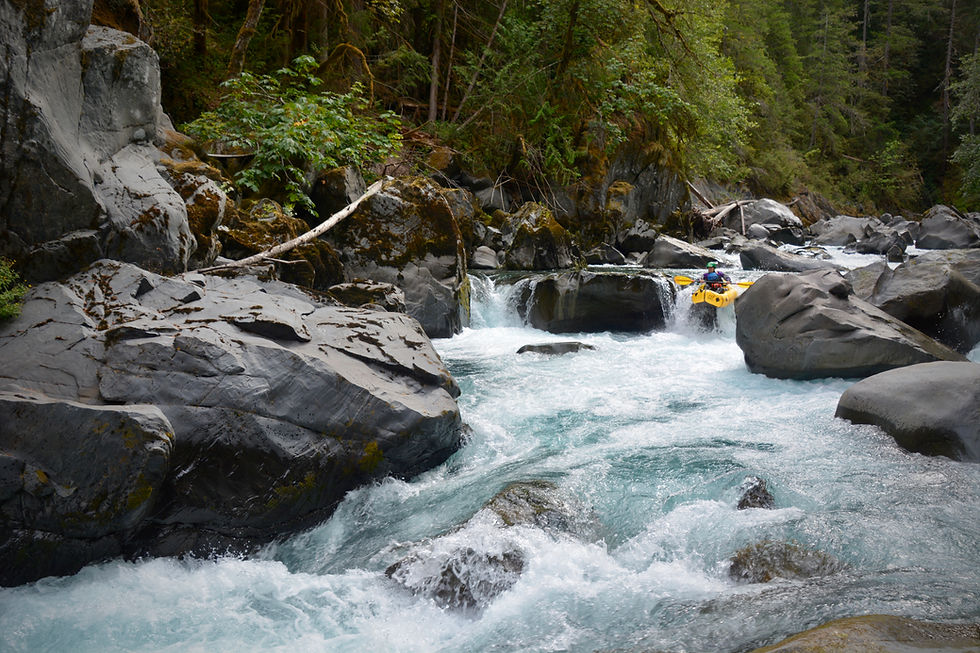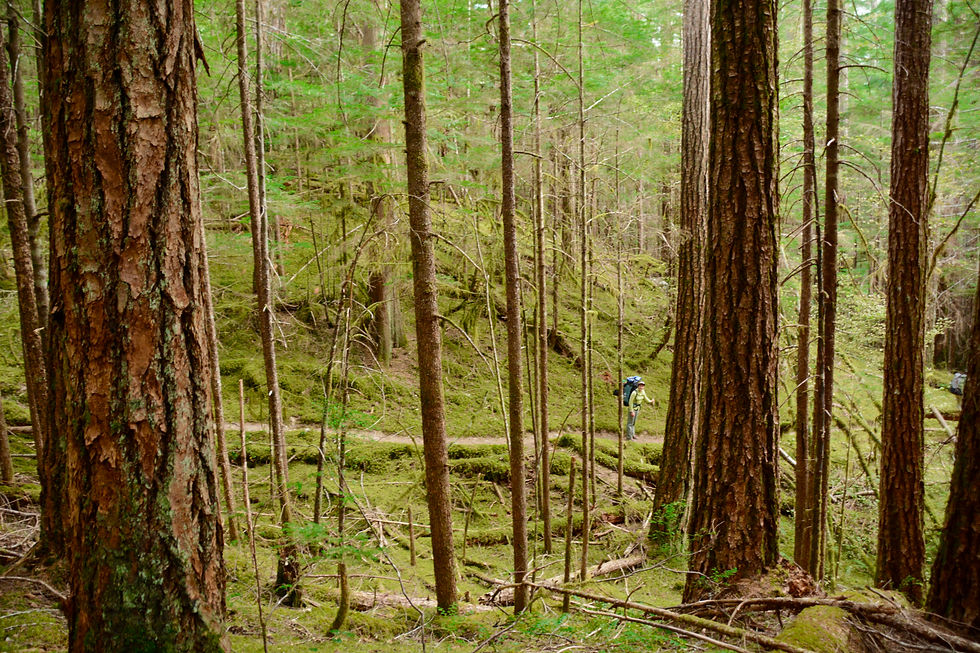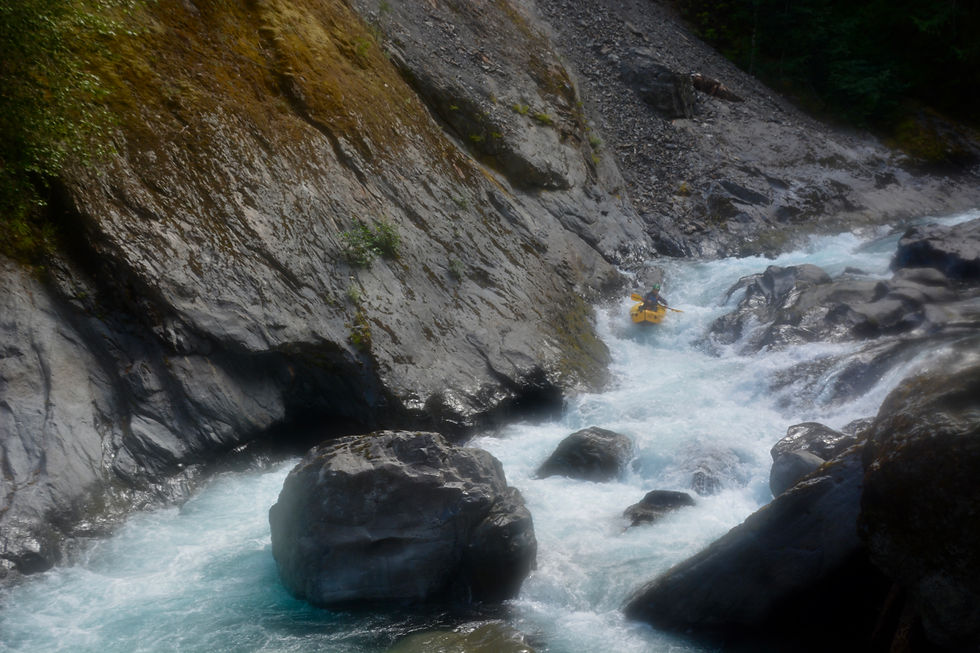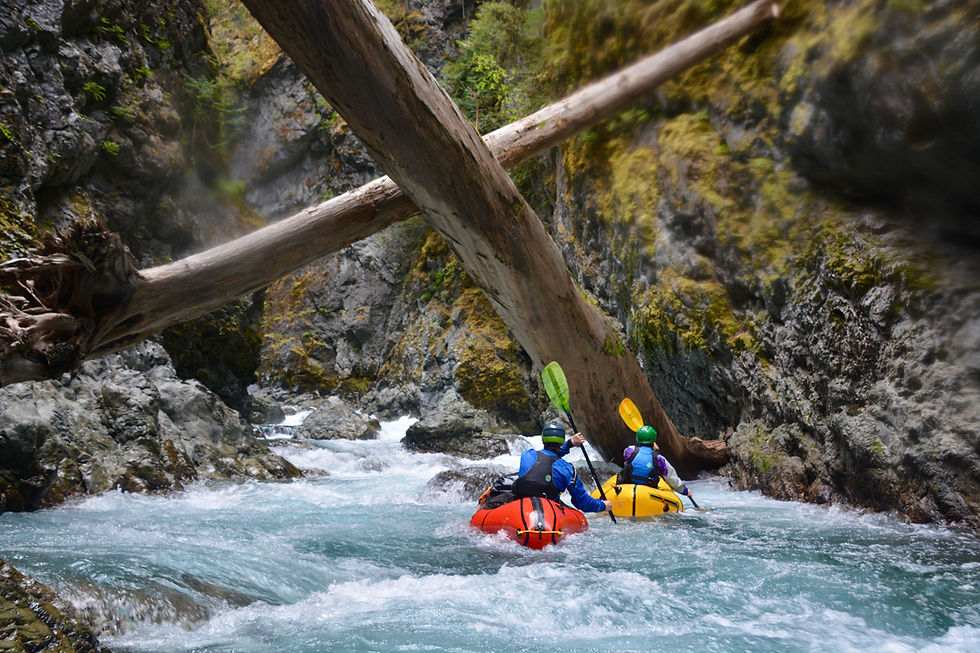Packrafting the Grand Canyon of the Elwha: Exploring the depths of Olympic National Park
- Tim Kelley
- Oct 12, 2018
- 3 min read
Updated: Jan 19

Why Elwha?: The Elwha is about as dramatic a river as I could imagine. An incredibly lush landscape with continuous and intimate sheer-walled canyon scenery. This river is often referred to as the crown jewel of the Olympics and is easily one of the most beautiful rivers I have paddled in Washington. The water is aquamarine and the rapids are challenging and stacked. Typically, this trip is done as a overnight class V kayak trip during the summer months. Late summer or early fall offer lower levels that provide an enjoyable but committing packraft experience.

Why packraft?: This is undoubtedly a classic hardshell run. With flows above 600 cfs, kayaks would be the craft of choice. That said, it is objectively more enjoyable to do the 8-mile hike with a lightweight packraft kit than your typical 70-80 pound kayak kit. In 2018, the road to the trailhead was washed out, which necessitated an additional 6 miles of hiking ... just one more reason to packraft. Packrafting also extends the season of this run and makes it viable when things are bone dry in the Northwest.


Difficulty: The Elwha is a remote and committing river with lots of wood and many rapids that are un-portagable. At low flows, this run still deserves a class V rating due to its remoteness and commitment level, but some of the rapids lose their bite and are separated by small pools. Expect lots of stacked IV-IV+ action with the marquee rapids, Eskimo Pie, and Goblin Gates maintaining their class V grade. Nightmare, the un-scoutable and un-portagable rapid is typically the psychological crux of the run, but low flows make it scoutable from a small eddy on river left and the move itself boats like a class IV. Based on our trip and info gathered from another group, 350 cfs to 450 cfs seems like an optimal range for packrafting. At these levels, most of the hardest rapids have a IV+ feel with some options (albeit involved) to scout or portage the consequential sections. We were able to portage the top ledge of Eskimo Pie and seal launch back in for the final two-thirds. At Goblin Gates, there was an "eddy" on river left that we carefully caught to facilitate a tricky portage around the backed-up hole and wood (August 2018) in the top ledge. Even at low levels, the Elwha is intimidating and best for parties with expedition packrafting experience, a willingness to get creative on portages, and comfort boat scouting IV+.

Logistics:
Hike in eight miles from Whiskey Bend trailhead along a gradually ascending and well-maintained trail. In 2018, the road to the put-in experienced a washout requiring an extra six miles of road walking from Madison Falls (biking possible). Here was our schedule:
Day1: Drive to Port Angeles, obtain a backcountry permit from the NPS ranger station, and hike 14 miles to Mary's Falls camp.
Day 2: Paddle the Grand Canyon of the Elwha, camp at Goblin's Gate before the river enters Rica Canyon.
Day 3: Paddle to the old dam site and hike out to the road (a short but steep bushwhack) and hike the remaining 3 miles to the car. It would be possible to paddle all the way to your car, but paddling through the old dam site (Glines Canyon) is illegal and apparently full of concrete and rebar.

Permits:
Easy to get a permit in person at the ranger station in Port Angeles. Reservations are not needed for the Mary's Falls camp.
https://www.nps.gov/olym/planyourvisit/wilderness-permits.htm
More Resources:
Video of a 2017 descent of the Elwha:
https://vimeo.com/239267551
American Whitewater's write-up and gauge information.




Comments